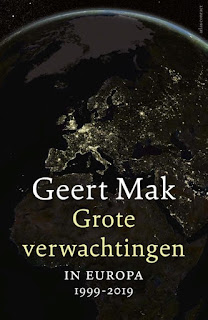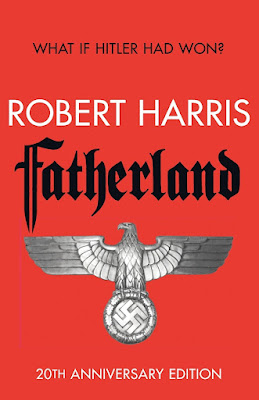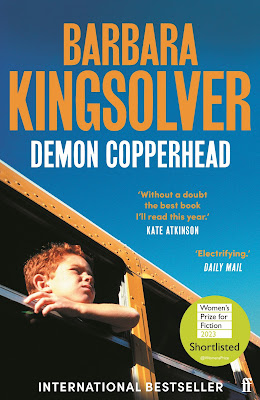
Clinton, Hillary Rodham "It Takes a Village: And Other Lessons Children Teach Us" - 1996
"No Family is an Island" is one of the chapter titles in this remarkable work by Hillary Clinton.
Hillary Clinton is a wonderful person. If you don't agree, read this book. You can tell how dedicated she is to help children and families to raise their children. This is what her politics is based on, how most politicians should base their values on. We all need to stand together to help the next generation.
The contents of her book can already be seen in the chapter titles. Aside from the one mentioned above, there is "Every Child Needs a Champion", "Kids Don't Come with Instructions", "Child Care Is Not a Spectator Sport", "Children Are Citizens Too", and many more.
I totally agree with her in her point. We all need to help each other out. When my children were in school, I always had other kids over to help them with the subjects that were difficult for both themselves and their parents, to feed them or just to give them a home after school when their parents were at work. I was in the lucky position to be at home with our boys but I opened it up for many other kids most of whom are still in touch with us.
But that's not the main aim of the book. Society in general should help the children to find their way into this world. Often, when I hear about American politics its those who are against guns (as am I) against those who are against abortion (as am I). We can be against both. We can support children and make sure they don't get pregnant as teenagers. And if they do get pregnant, as long as we don't help them, there will be abortions, and illegal ones are very dangerous. If you I pray for the unborn babies, you should also pray for their mothers for whom it was the last resort, the only way out. And for those kids who get killed in the schools and on the streets through the gun laws. Educate kids better, give everyone access to healthcare, help single mothers that they don't end up in total poverty, those are the things that avoid abortions, making them illegal only makes it worse. The United States has 3 times as many abortions as Germany. They also have one of the highest known rates of adolescent pregnancy and births in developed regions. Being pro-birth and not pro-life increases abortions. So, don't just pray for the unborn children but also for the poor girls who are pushed into a situation where they see only one way out. Amd for those who have their children and end up in poverty because of it. And that those who make the laws will make it better for those girls who do get pregnant and can't help themselves.
All in all, Hillary Clinton gives great examples on what we can do better, and we should all strive for a better world, especially for the poorest and weakest among us.
Here are some quotes that give us food for thought:
"Some of us can recall an aunt who longed to go to college, a grandmother who kept voluminous journals she showed to no one, a female cousin with a head for figures. Much of the fiction written by and about women over the centuries contains an undercurrent of disappointment, dissatisfaction, or simple wistfulness about roads not taken."
I was one of those women, and I had to regret all my life that I was not given the opportunitz to go to university.
"Roosevelt's words reflected the popular view that would dominate much of this century. As the private sector grew, people assumed that the excesses of unbridled competition had to be restrained by government. As a result, consumers have been protected by antitrust laws, pure food and drug laws, labeling, and other consumer protection measures; investors have been protected by securities legislation; workers have been protected by laws governing child labor, wages and hours, pensions, workers' compensation, and occupational safety and health; and the community at large has been protected by clean air and water standards, chemical right-to-know laws, and other environmental safeguards.
…
Over the course of the century, our environment has become cleaner, we have become healthier, our workers safer, our financial markets stronger."
"But government is a partner to, not a substitute for, adult leadership and good citizenship."
"In Germany, too, there is a general consensus that government and business should play a role in evening out inequities in the free market system and in increasing the ability of all citizens to succeed. Compared to Americans, Germans pay for higher base wages, a health care system that covers everyone but costs less than ours, and perhaps the world's finest system of providing young workers who do not go on to college with the skills they need to compete in the job market. As a result of such investments, German workers command higher wages than their American counterparts, and the distribution of income is not so skewed as ours is."
There are also many great people whom she quotes in the book, but I will leave it at this one:
"There is not one civilization, from the oldest to the very newest, from which we cannot learn." Eleanor Roosevelt
From the back cover:
"For more than twenty-five years, First Lady Hillary Rodham Clinton has made children her passion and her cause. Her long experience with children - not only through her personal roles as mother, daughter, sister, and wife but also as advocate, legal expert, and public servant - has strengthened her conviction that how children develop and what they need to succeed are inextricably entwined with the society in which they live and how well it sustains and supports its families and individuals. In other words, it takes a village to raise a child. This book chronicles her quest - both deeply personal and, in the truest sense, public - to discover how we can make our society into the kind of village that enables children to grow into able, caring, resilient adults. It is time, Mrs. Clinton believes, to acknowledge that we have to make some changes for our children's sake. Advances in technology and the global economy along with other developments society have brought us much good, but they have also strained the fabric of family life, leaving us and our children poorer in many ways - physically, intellectually, emotionally, spiritually. She doesn't believe that we should, or can, turn back the clock to 'the good old days.' False nostalgia for 'family values' is no solution. Nor is it useful to make an all-purpose bogeyman or savior of 'government.' But by looking honestly at the condition of our children, by understanding the wealth of new information research offers us about them, and, most important, by listening to the children themselves, we can begin a more fruitful discussion about their needs. And by sifting the past for clues to the structures that once bound us together, by looking with an open mind at what other countries and cultures do for their children that we do not, and by identifying places where our 'village' is flourishing - in families, schools, churches, businesses, civic organizations, even in cyberspace - we can begin to create for our children the better tomorrow they deserve."























